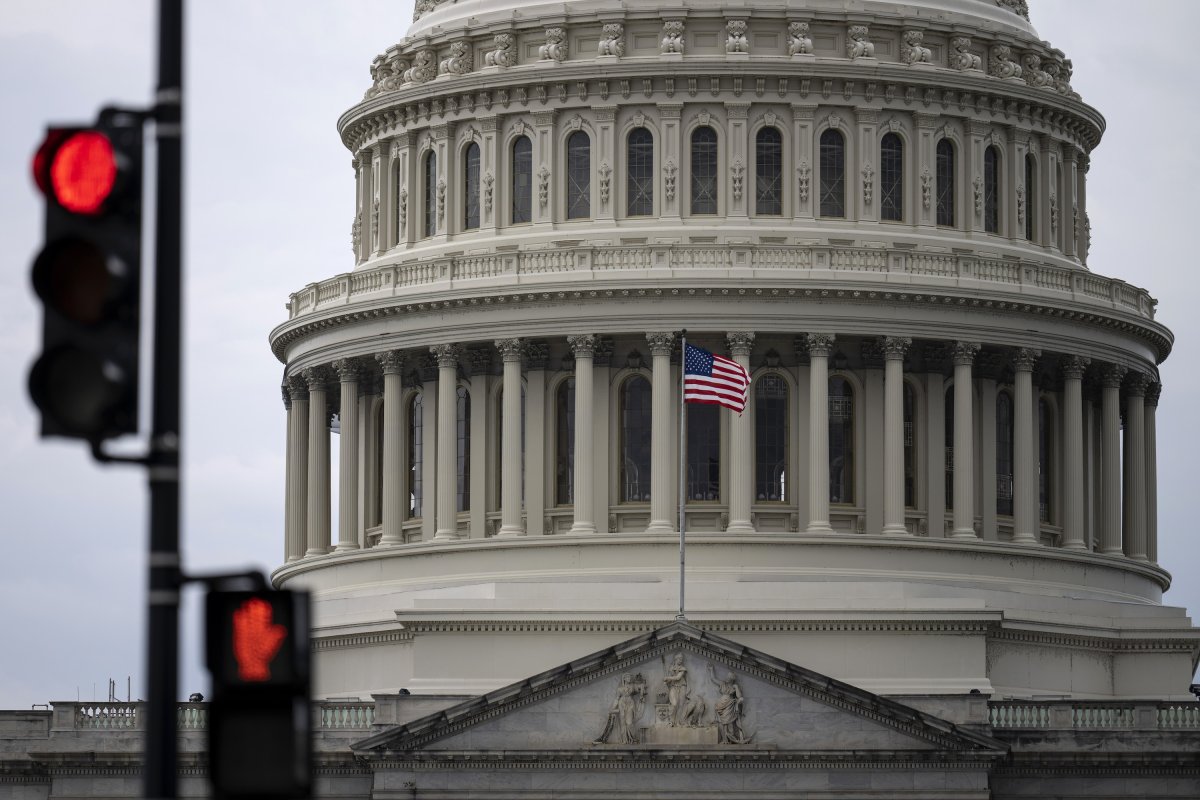Fighting recessions and inflation has become a lot more complicated lately. Beginning with the Great Recession, Washington's discretionary fiscal policy took on a lead role in economic stabilization. In this role, it has not done well. While debates rage over when the Federal Reserve should stop its interest rate increases, the evidence is now overwhelming that Congress and the president need to get out of the stabilization business and stop trying to use the federal budget to spend our way out of future recessions.
From a budgetary perspective, attempts to provide stimulus during the last two recessions, primarily through new spending programs, have caused an unprecedented surge in the national debt—pushing it from $10 trillion to more than $30 trillion over the past 15 years. Furthermore, the timing and magnitude of the stimulus has been a problem. The most severe example was in 2021, when legislation created much more stimulus than the economy could handle, resulting in the highest inflation in over 40 years. This decision continues to be extremely costly and serves as a reminder that economic policy needs to be much more intelligently exercised.
Even now, the inflation spiral continues despite the Fed's unprecedented effort to undo this over-stimulus by raising short-term interest rates. But excessive federal spending continues to work against these efforts—it is set to outpace tax revenues by nearly 30 percent in 2022 and 2023, adding another $3 trillion in debt.
Prior to 2008, discretionary fiscal policy—the deliberate effort to use federal spending and tax cuts to provide stimulus during economic downturns—had only a minor role in economic stabilization. Instead, monetary policy took the lead with assistance from the rule-based automatic stabilizers of the federal budget, including automatic changes in revenue collections and on spending with programs like unemployment insurance, food stamps, or Medicaid. Over 50 years, we weathered six recessions with minimal help from discretionary fiscal policy, during which time the primary (non-interest) deficit and public debt averaged just 0.1 percent and 35 percent of GDP, respectively, compared to about 3.3 percent and 97 percent today.
There are three reasons why we used to forgo discretionary fiscal policy. First was concern that public debt above 35 percent of GDP was very risky and would require significant future tax increases or reductions in both public and private spending. It would also leave us unprepared for future challenges posed by underfunded entitlement programs. The trustees of the Social Security and Medicare trust funds fund recently projected that both will be insolvent within 10 years. According to the Congressional Budget Office, public debt will already be at an all-time high of 118 percent of GDP ($46.5 trillion) when this happens. Finding new funding sources or lowering benefits to millions of retired people will extremely difficult.
Second, we understood that providing effective and efficient stabilization with discretionary fiscal policy was nearly impossible. It still is. When recession looms, stimulus needs to be applied quickly and in the right amount. Legislation authorizing new federal spending or tax relief needs to be passed quickly. When that stimulus threatens to overheat the economy and create inflationary pressures, it must be rescinded quickly. However, the annual budget process is a complete mess—it is never completed on time, and there is never consensus on spending, revenue, and borrowing levels.

Even outside this process, new budget legislation like that passed in the aftermaths of the Great Recession and the coronavirus pandemic takes weeks or months to negotiate, draft, and enact. Then it can take months or years to implement and to get the full stimulus from the spending.
Also, it is very hard to know or even estimate how much stimulus is needed or how effective it will be. There are dozens of federal programs that could be used or created by new budget legislation—each with their own short- and long-term effects on the economy. The strength of the stimulus depends upon particular economic conditions which may change in the near term and by subsequent Fed actions. In reality, there is just not enough economic research to make reasonably accurate projections.
The third reason we avoided the use of discretionary fiscal policy prior to 2008 was that monetary policy appeared to be an effective means of economic stabilization. It provided quick stimulus through lowering short-term interest rates and other tools. That stimulus could be easily withdrawn when a risk of inflation appeared. It was easy to fine-tune when conditions changed. Combined with the effects of the automatic stabilizers, it seemed to be able to provide what was needed. We were having just one recession every 10 years and they were becoming milder and shorter over time.
The conventional view changed thanks to the historically low interest rates of the last decade and a half. In the aftermath of the Great Recession, we faced a dilemma: the Fed had lowered short-term interest rates to essentially zero and could go no lower. The only way to add additional stimulus was through federal spending. We understood federal debt would greatly increase, especially with inefficient discretionary stimulus. Some experts—for example in a Brookings Institute estimate of the effects of the American Rescue Plan of 2021—warned that so much spending could overshoot the target and set off a rise in inflation. These predictions were, of course, correct.
This turned out to be a terrible misuse of discretionary fiscal policy, and we will keep incurring the price until it stops.
Keith Hall is a former director of the Congressional Budget Office, former commissioner of the Bureau of Labor Statistics, and a distinguished senior fellow with the Mercatus Center at George Mason University.
The views expressed in this article are the writer's own.
Uncommon Knowledge
Newsweek is committed to challenging conventional wisdom and finding connections in the search for common ground.
Newsweek is committed to challenging conventional wisdom and finding connections in the search for common ground.
About the writer
To read how Newsweek uses AI as a newsroom tool, Click here.








